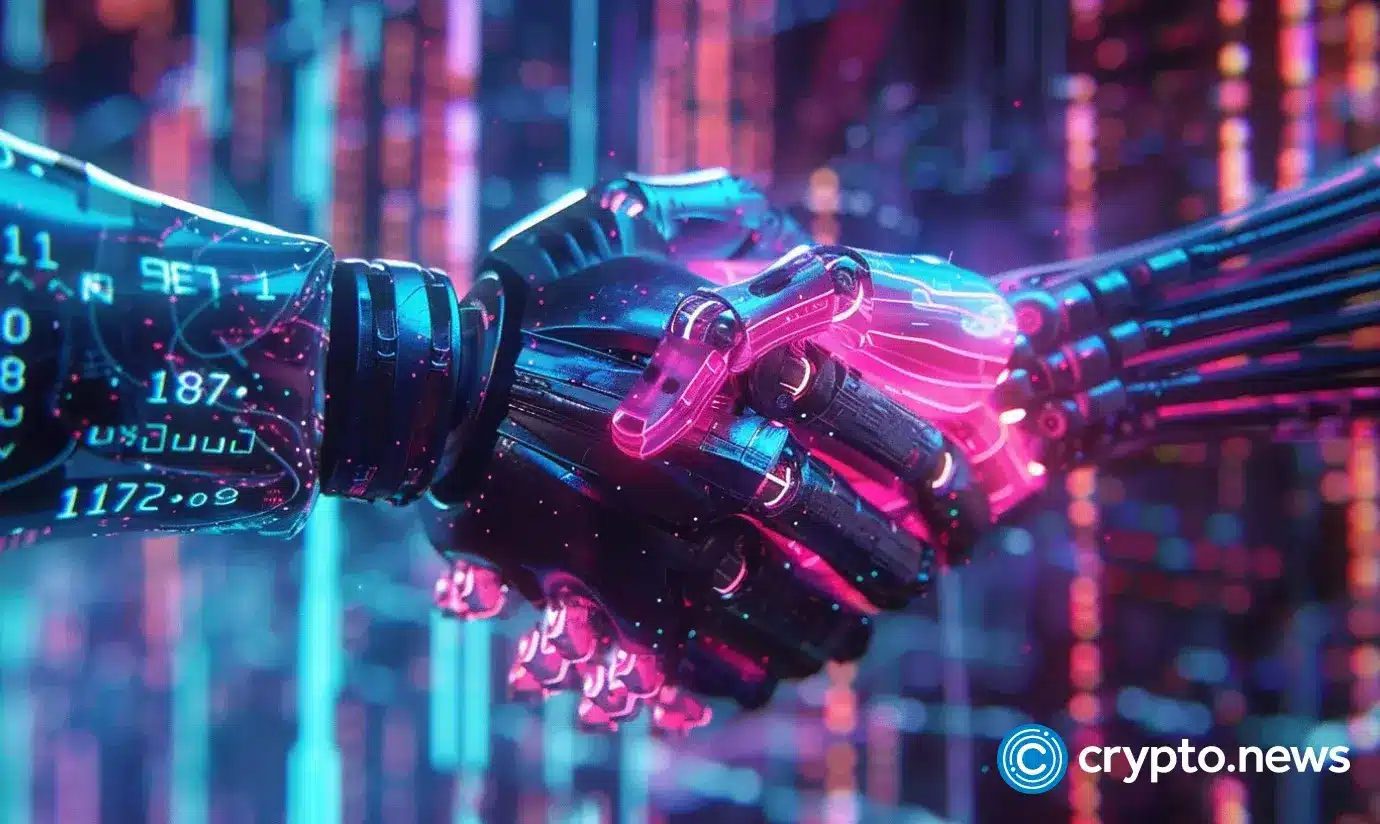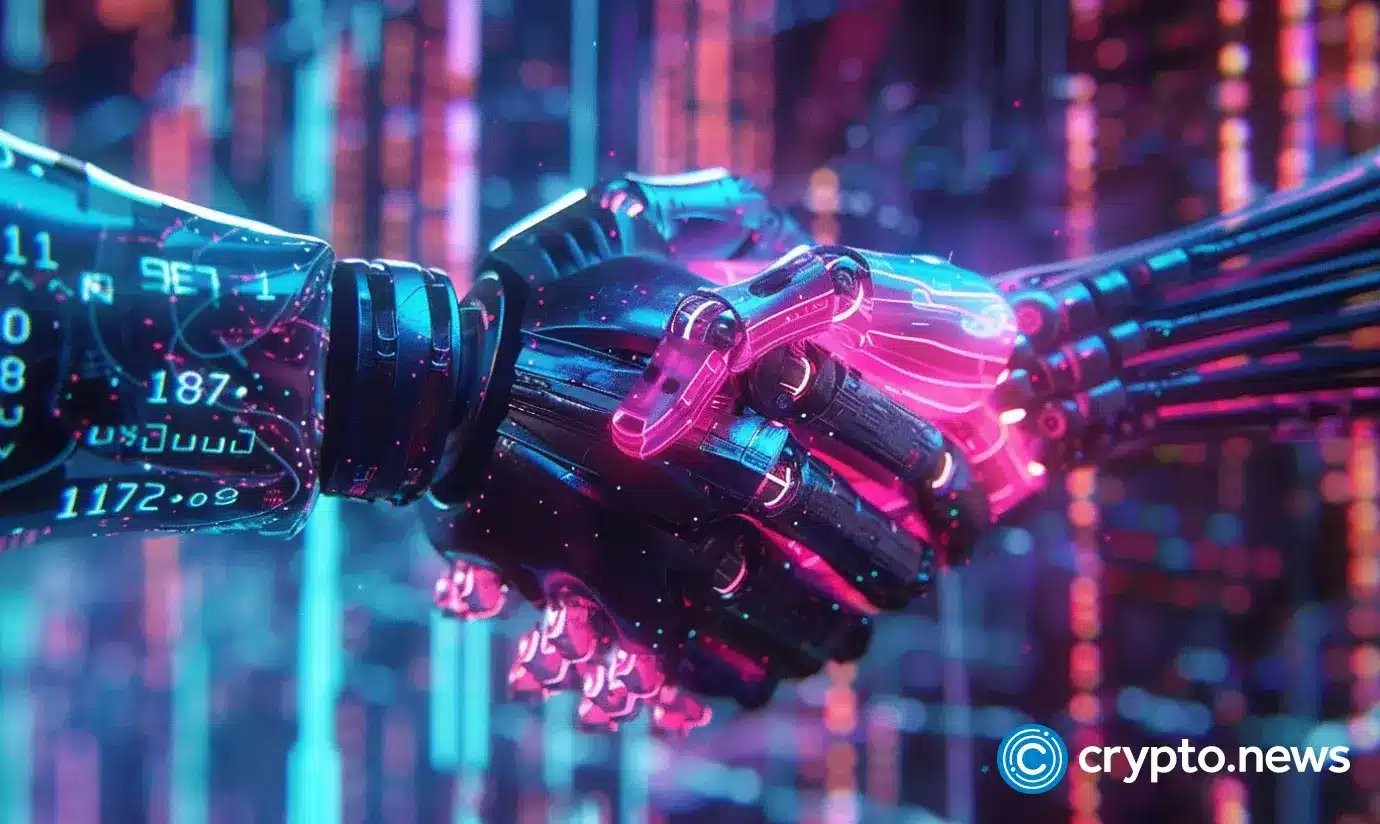

What happens when the secure world of blockchain meets the intelligence of AI? Discover how the EU is blending these technologies to create something magical.
Blockchain and AI are two buzzwords you’ve probably heard a lot about. But what happens when these technologies join forces?
The European Union (EU) is exploring this very question. In fact, the European Blockchain Observatory and Forum (EUBOF), part of the European Commission, recently published a report citing the potential of integrating blockchain technology with artificial intelligence (AI).
According to the EUBOF report, authored by the Directorate-General for Communications Networks, Content and Technology, the possibilities are immense.
Think about it: AI data, which needs to be super secure, can be stored on the blockchain. This is a big deal for industries like healthcare and finance, where data security is crucial.
The EUBOF also points out that combining blockchain and AI can create decentralized AI networks. This means that instead of a few big companies controlling all the data, there can be a more collaborative approach to AI development. In other words, it levels the playing field.
Another cool thing about this tech duo is how AI can make smart contracts smarter. These contracts, which automatically execute when conditions are met, can benefit from AI’s capabilities, making them more efficient and reliable.
To lead the charge, the EUBOF recommends that Europe become a global hub for blockchain knowledge. They also suggest engaging more with various stakeholders and addressing the challenges that come with new innovations.
On top of that, the EU plans to amend regulations for the European High Performing Computer Joint Undertaking (EuroHPC), which manages supercomputers across Europe. These supercomputers will support AI development, with new AI factories set to enhance their capabilities.
So, what does this mean for us? Let’s find out.
Why AI and blockchain are a perfect match
AI and blockchain are two hottest topics that can make investors sit up and take notice. While it’s easy to be skeptical, there are solid reasons for the excitement.
So, how can AI supercharge blockchain? One of the key areas is scalability.
Blockchains like Bitcoin (BTC) and Ethereum (ETH) are notoriously slow. Bitcoin handles about 7 transactions per second (TPS), and Ethereum manages around 30 TPS. Compare that to Visa, which processes 6,800 TPS.
This speed gap is a looming hurdle for blockchain adoption. Enter AI. It can help by predicting congestion periods and optimizing transaction flows, making blockchains faster and more efficient.
Assume AI as a traffic controller, analyzing data to spot potential slowdowns and rerouting transactions to keep everything moving smoothly. This not only speeds things up but also makes blockchain more reliable and ready for bigger, more complex applications.
AI can also enhance blockchain’s security. Take Ethereum’s side-chain solutions, known as rollups. These rollups process transactions off-chain and then add them to the blockchain.
Zero-knowledge rollups validate transactions using cryptographic proofs, ensuring that sensitive information remains private. Optimistic rollups, on the other hand, assume transactions are valid unless challenged by proof of fraud.
Normally, validations can take a long time, depending on the network traffic, creating a bottleneck. However, AI can analyze transaction patterns, predict potential issues, and optimize the validation process, speeding up the entire system and making it much more efficient.
Moreover, AI’s ability to analyze vast amounts of data quickly makes it a powerful tool for auditing blockchain applications. Instead of waiting for vulnerabilities to be exploited, AI can proactively identify and fix them.
Fraud detection is another area where AI shines. AI can monitor blockchain networks for unusual activities, flagging potential fraud in real-time. This capability is crucial as blockchain becomes more integrated into financial systems. Early detection can prevent colossal losses and maintain the integrity of blockchain networks.
However, integrating AI with blockchain isn’t without challenges. Regulation is a major hurdle. The EU’s new Artificial Intelligence Act, the first of its kind, adds layers of compliance for companies using AI.
This act requires risk assessments, disclosures, and cooperation with authorities and has global implications. Even companies outside the EU must comply if they want to operate within its borders.
Despite these regulatory challenges, the synergy between AI and blockchain is undeniable. AI can make blockchains faster, more secure, and more reliable, while blockchain can provide AI with a secure and transparent data storage solution.
The EU recognizes this potential and is taking steps to lead the charge, setting the stage for advancements in technology.
The Future of AI and blockchain integration
The integration of AI and blockchain offers a future where these technologies not only coexist but enhance each other’s capabilities. Let’s explore the potential impact of this powerful combination.
One of the most promising areas is supply chain management. Currently, supply chains are complex, often non-transparent networks in which tracking the origin and journey of goods can be daunting.
Blockchain can provide a clear, tamper-proof ledger for recording every step in the supply chain. When combined with AI, which excels at analyzing vast amounts of data, businesses can optimize logistics, predict demand, and identify potential disruptions before they occur.
For example, IBM’s Food Trust blockchain, which tracks food products from farm to table, can be enhanced with AI to detect patterns and prevent foodborne illnesses more effectively.
In the healthcare sector, the amalgamation of AI and blockchain could lead to new advancements. AI algorithms can analyze patient data to provide personalized treatment plans, while blockchain ensures that this sensitive information is stored securely and accessed only by authorized parties.
This combination can also streamline clinical trials, where AI can help in identifying suitable candidates and predicting outcomes, and blockchain can maintain the integrity of trial data, preventing fraud and ensuring transparency.
Financial services are another field ripe for transformation. Decentralized finance (DeFi) platforms, which are built on blockchain, can leverage AI to enhance trading algorithms, improve credit scoring models, and detect fraudulent activities.
AI’s predictive capabilities can provide more accurate risk assessments, while blockchain’s security features can protect user data and transactions.
According to a report by PwC, AI is expected to contribute $15.7 trillion to the global economy by 2030, with blockchain adding another $1.76 trillion. Together, they can create a more secure, efficient, and innovative financial ecosystem.
The road ahead
As we move ahead in this era, we can envision a world where smart cities are powered by AI and blockchain.
Traffic management systems could use AI to analyze data from various sources, such as cameras and sensors, to optimize traffic flow and reduce congestion. Blockchain can ensure the integrity and security of this data, preventing tampering and unauthorized access.
Similarly, energy grids can benefit from this integration, with AI predicting energy demand and blockchain facilitating peer-to-peer energy trading among consumers.
In short, the future with AI and blockchain together looks incredibly promising. Together, they can solve some of the most pressing challenges across various industries and pave the way for a more efficient, secure, and innovative future.

Source link

